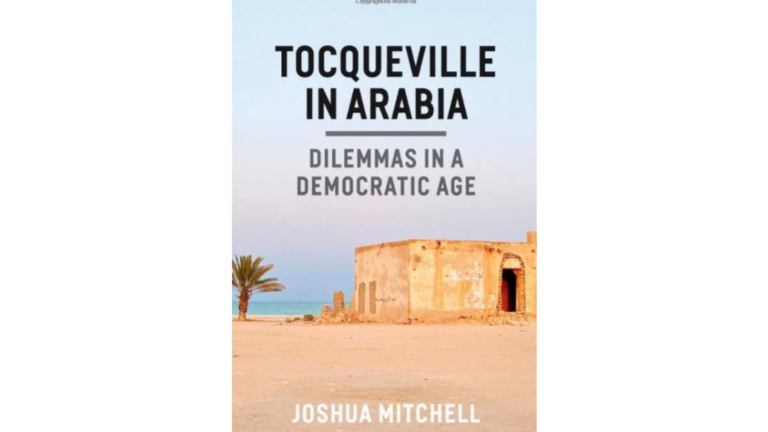Tocqueville in Arabia: Dilemmas in a Democratic Age

The Arab Spring marked the most profound uprising in the Middle East for generations. But if democracies born of these protests are to succeed in the absence of a strong democratic tradition, their success depends in part on understanding how Middle Easterners view themselves, allegiances to family and religion, and their relationship with the wider, increasingly integrated world. Many of these same questions were raised by Alexis de Tocqueville during his 1831 tour of America, itself then a rising democracy. Joshua Mitchell spent years teaching Tocqueville’s classic account, Democracy in America, in America and the Arab Gulf. His book offers a profound personal take, showing very different attitudes and values between Western and Middle East students. He writes of American students valuing the individualism of commercial self-interest for example, while Middle Eastern students had doubts about individualism and deep suspicion of capitalism, fearing it could destroy long-held loyalties and obligations. Whatever their differences, students in both worlds grappled with a sense of disconnectedness that social media doesn’t remedy. We live in a time rife with mutual misunderstandings, and Mitchell’s Tocqueville in Arabia offers a guide to the present, troubled times, leavened by hope about the future.